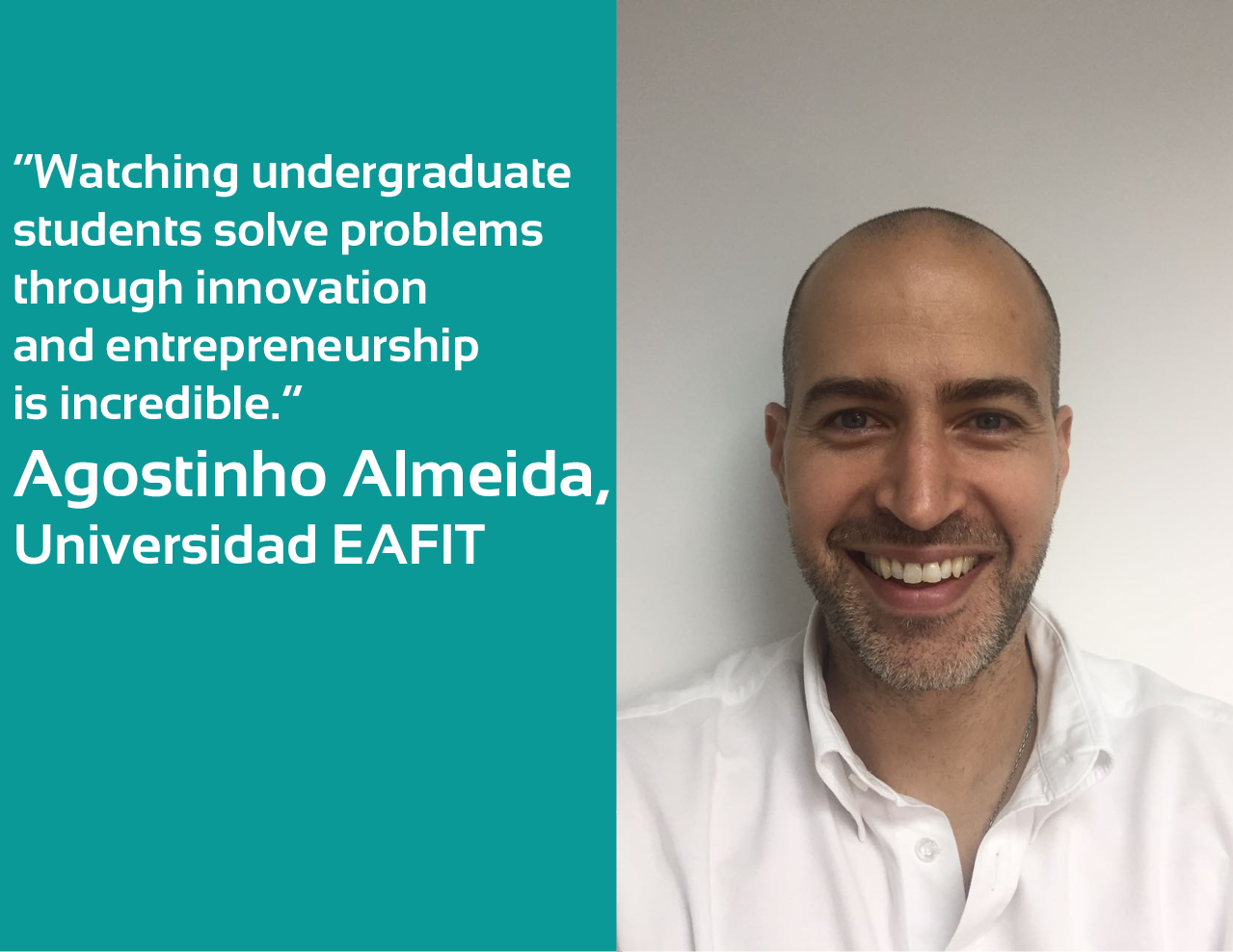
This week we continue our series highlighting educators within the VentureWell network that are doing good work—faculty members that are challenging norms in higher education and inspiring students to impact the world through invention.
This month’s faculty spotlight is Agostinho Almeida, professor in the Department of Biological Sciences at Universidad EAFIT in Colombia. Almeida teaches biology students how to take their research from the lab and into the market. He is also an instructor for the U.S. Department of State’s GIST Startup Boot Camp program and for VentureWell’s Xcelerator program.
How did you get interested in teaching entrepreneurship?
I was looking for a new challenge after being a researcher and educator in the health sciences field for several years. I considered shifting into business management. During my MBA I took a tech entrepreneurship course. That inspired me to investigate becoming an innovation and entrepreneurship educator. I didn’t just jump into this new field right away. I knew that I needed some on-the-ground experience first. After founding a few companies and working in tech and innovation management, that’s when I felt prepared to become an educator in the field.
What is your favorite thing about teaching?
I have three favorite things about teaching: learning, meeting new people, and impact. Teaching keeps me on my toes and forces me to stay up to date with current trends. Interacting with 50+ new students from different backgrounds every semester is a huge privilege. Plus, watching undergraduate students solve problems through innovation and entrepreneurship is incredible.
Where would you like to see the field of entrepreneurship in five years?
I believe there will be more women founding and leading startups. I also think we’ll see more STEM students focused on life sciences starting new ventures. I predict we’ll see countries and regions with burgeoning startup ecosystems see their hard work pay off. I also hope more leaders in government and science and technology develop solid strategies to boost funding for both research and development and innovation and entrepreneurship.
What traits make for great teachers, advisors, and mentors?
While teachers, advisors, and mentors have different roles, I would say there are common traits among them such as:
- Generosity: They’re willing to share their knowledge, skills, tools, and time.
- Constructive criticism: They offer feedback in a way that doesn’t squash dreams or morale.
- Motivation: They help people push forward while offering a reality check at the same time.
- Willingness to learn: They admit that they don’t know everything and are willing to learn new things.
What books on entrepreneurship and innovation have you been reading lately?
I recently read To Sell Is Human: The Surprising Truth About Moving Others by Daniel Pink. I constantly remind my students that they need to be very good at selling their ideas to savvy and informed customers, such as teachers, investors, and potential partners. Daniel Pink’s book illustrates the process with numerous examples.
What’s your most useful classroom activity or assignment?
I like to do two exercises with my biology undergrad students. One is a value proposition/business model canvas exercise. It’s a great way for students to receive feedback on their ideas. I also bring in experts from different sectors to enhance the review process. The other exercise involves mock interviews for customer development. We tackle the whole process, from identifying the right customers to interview to interview best practices. Understanding the customer development process is key to preparing for the real interviews they will need to conduct to validate their value proposition.